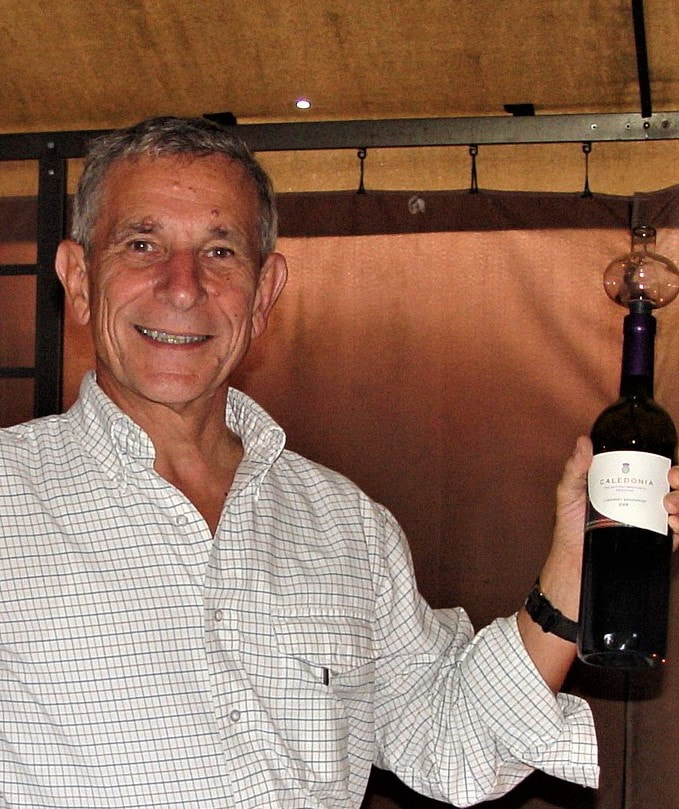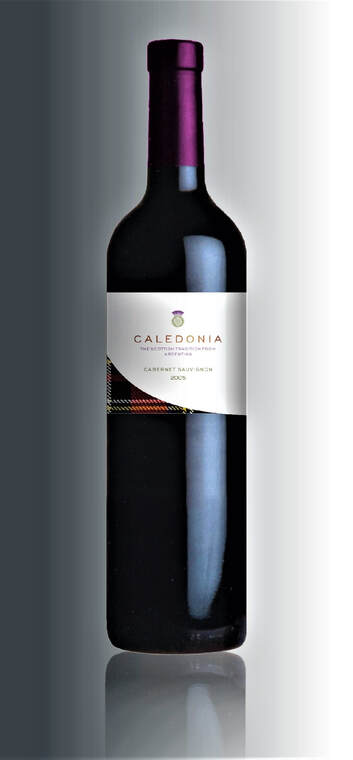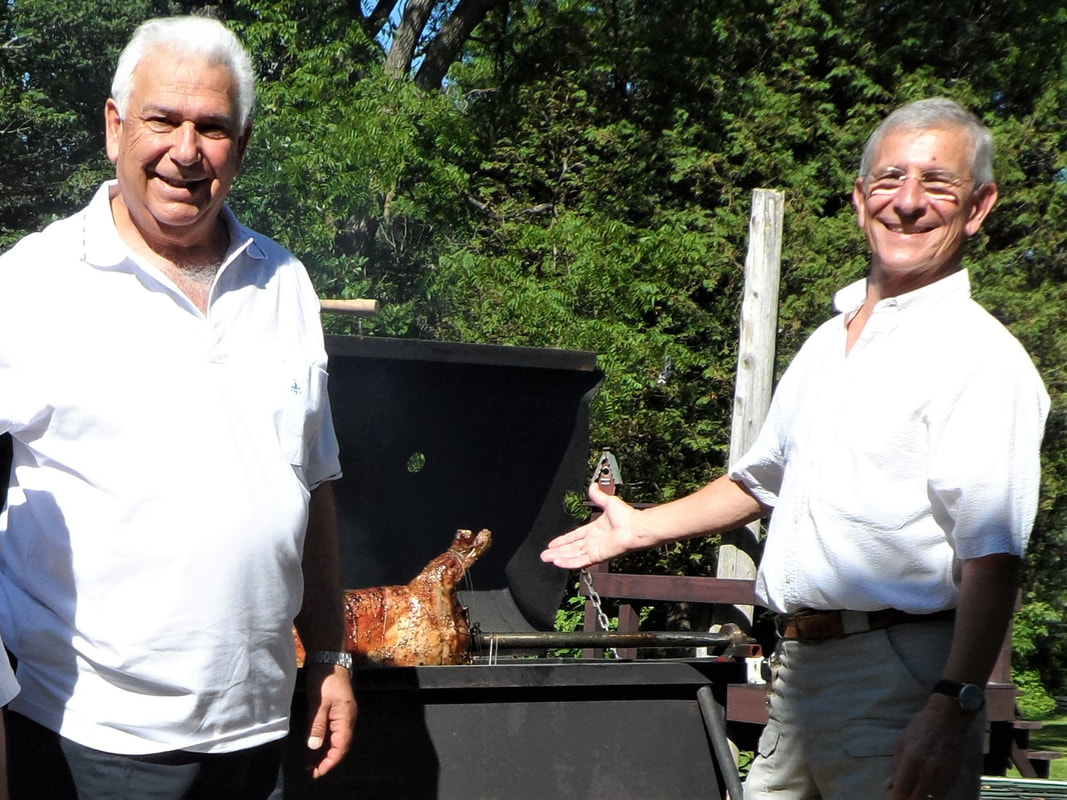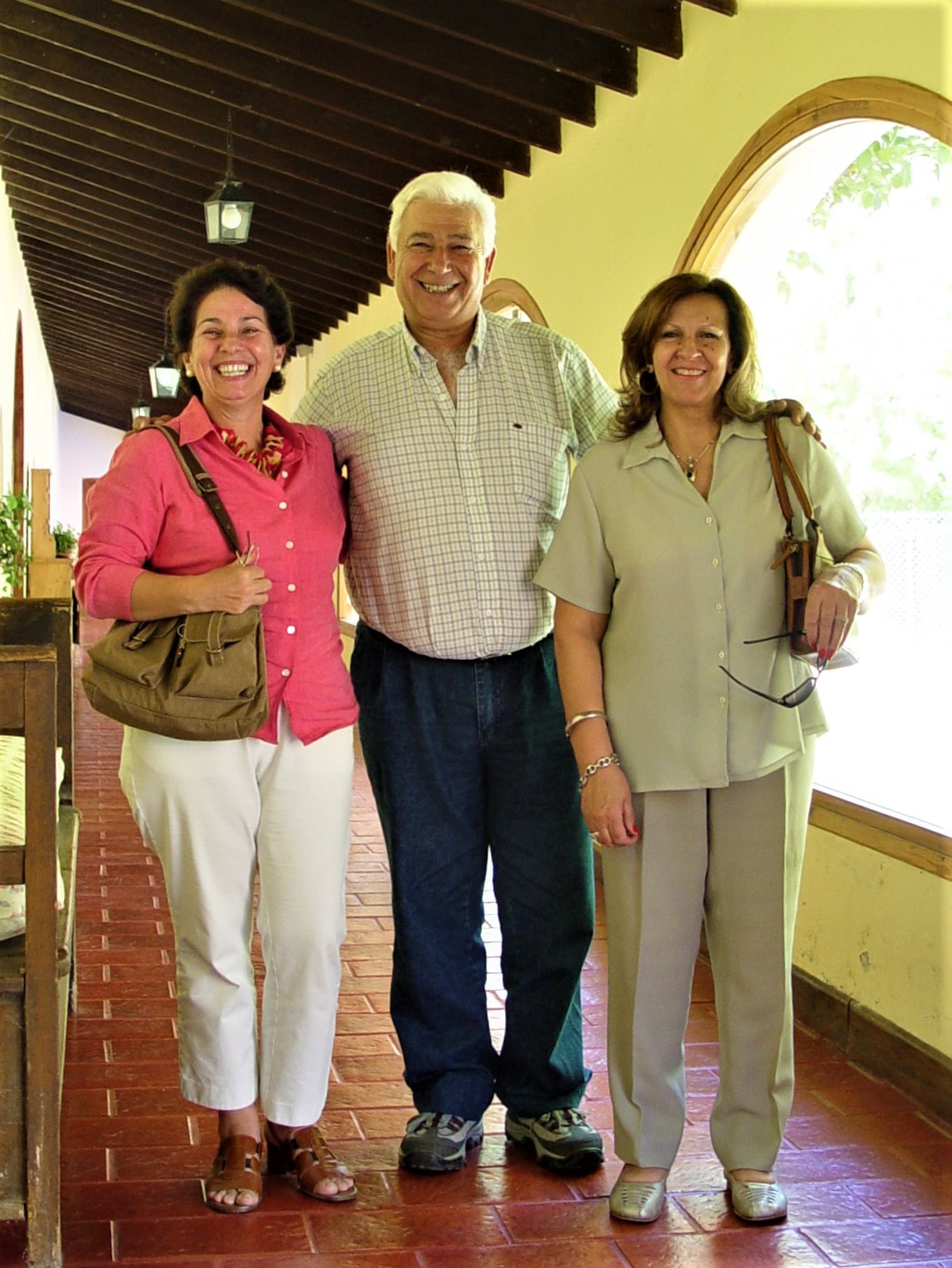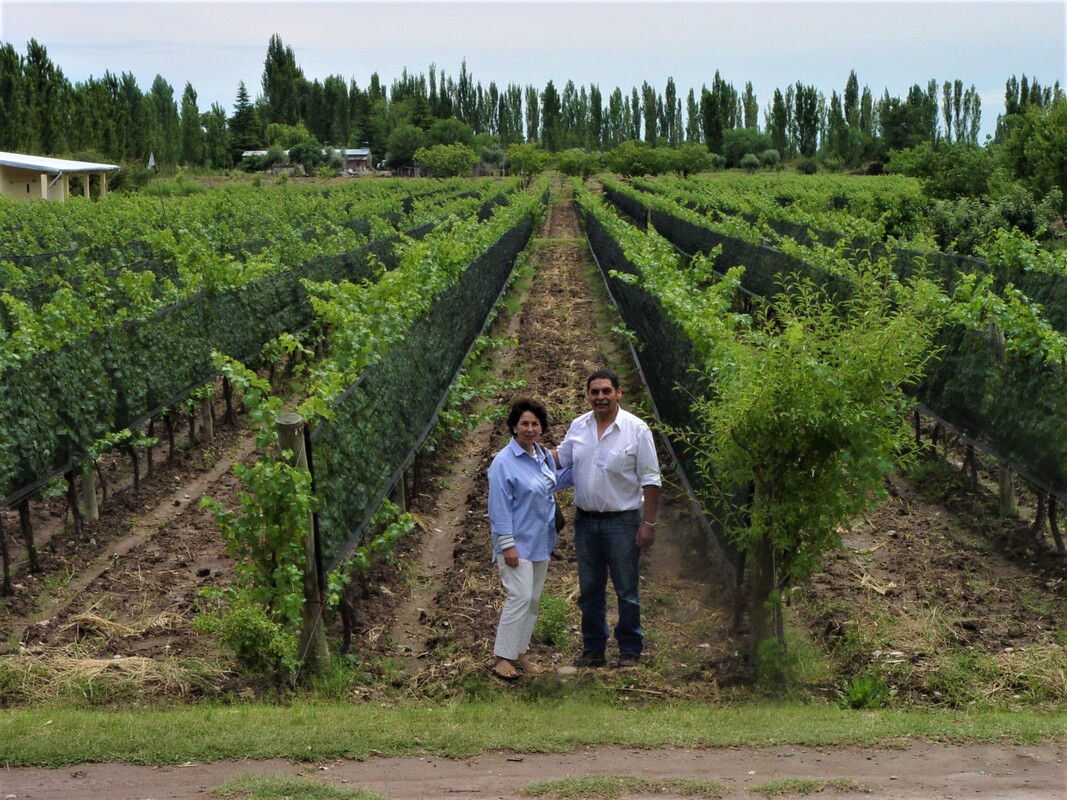Damian Provided the Answer! by Ronald Mackay
“Worthless!” The bank manager shoved the cheque back at me.
“Dorta’s winery gave it to us today, in payment for our 2004 grape crop!” My plea was pointless.
“Dorta’s account is closed. They sold out to another company. We no longer accept cheques from Dorta.”
“What now?” Viviana asked.
***
‘What now?’ That question had been plaguing us since buying a vineyard in the province of Mendoza, Argentina.
A simple question but there was never a simple answer.
Doing business in Argentina was like swimming in murky water. You founder, clutch at anything that appears solid, it gives way and you’re foundering again.
Uncertainty plagued our early business experience in Argentina.
Now we’d just been cheated by a once-respected winery. How would we find the money to finance the following year’s harvest?
‘What now?’
***
“Never will we sell grapes to a winery again!” Viviana was adamant.
But to be grape growers was precisely what we’d set out to become in 2003. The annual revenues from the five hectares of planted vines would cover operating costs and help us develop the remaining ten hectares.
Our business plan had failed at the first fence!
“This is what we’ll do,” Viviana continued. “We’ll turn next year’s harvest into wine, create our own brand, then export internationally!”
I shuddered. Our first year had been difficult. To turn our grapes into wine, create a brand, and find paying markets, would be infinitely more challenging.
‘What now?’
***
“What does ‘viveza criolla’ mean, Viviana?”
Viviana paused, thinking how best to explain that so characteristic of Argentine cultural practices to her naïve Scottish husband.
“Argentines – well, some, at least -- pride themselves on practising ‘viveza criolla’. Viveza criolla turns the normal practise of conducting business into warfare.”
“Why not simply opt for a win-win solution?” I asked naively.
“Because viveza criolla means, ‘I must win! You must lose!’ It’s the antithesis of good faith. It sees the other as a rival. And rivals employ treachery to get the upper hand.
Aghast, I listened. There was more to come!
“Viveza criolla is practised in the public sector as well. Government regulations are often ambiguous or unintelligible, so a public servant interprets them at his discretion.”
“You mean however he likes?”
“More or less. And he needn’t apply the same regulation equally to everybody. He can impose it to the advantage of one and to the disadvantage of another.”
“Arbitrarily?”
Viviana nodded. Astonished, I could think of nothing to say, but it helped explain why our business efforts so far, tended to end in frustration.
‘What now?’
We struggled on. We found Edgardo, an expert oenologist, willing to ferment our 2005 grapes and turn them into 20,000 litres of Cabernet Sauvignon for the European palate. We rented facilities to make and store our wine in a winery where the owner had excess storage capacity.
‘What now?’
***
“We have no record of fine wine grapes planted in your vineyard!” The official at the regional office of the National Institute for Grape-Growing (INV) and Wine-Production looked smug. “You cannot register your wine as ‘fine’. You must sell it as table wine for local consumption.”
‘What now?’
“Can you show us the relevant regulation?” I struggled to be polite.
The official riffled through the pages of a tome of regulations that governed provincial wine production.
Viviana and I spent hours studying it.
“Here!” Fine wine vines must be registered with the INV, and their origin authenticated. What now?
“Antonio!” I had a flash of insight.
“Yes! The scientist who told us that he first planted out part of our vineyard as an experiment with fine wine rootlings from his research station.”
‘What now?’
“We’ll pay him a visit him and ask him to authenticate our vines!”
***
“Yes!” Antonio was confident. “The first hectare of your vines came from quality rootlings I propagated myself. Cuttings from these the following year were used to plant the other four hectares. I can arrange for your vines to be registered as ‘fine’.”
The INV official scowled as he examined Antonio’s stamped certificate of authentication. With reluctance, he registered our five hectares as ‘fine-wine vines’.
‘What now?’
“Now we can register our brand.” Viviana sounded confident.
“How?”
***
“Caledonia?” The specialist at the brand registration office raised his eyebrows.
“The name the Romans gave to Scotland when they colonised Britain,” I explained.
“I’ll check.” He returned with bad news. “That name is taken!” He showed us an Australian label: ‘Caledonia Australis’.
‘What now?’
“What if we put Caledonia into capital letters?” Vivian suggested. “And perhaps add something?”
Inspired, I wrote: “CALEDONIA the Scottish Tradition in Argentina”.
“I’ll make inquiries.” The specialist promised.
‘What now?’
We wait!
***
“The owner of Caledonia Australis agrees to your registering CALEDONIA the Scottish Tradition in Argentina.”
At least an Australian winemaker was acting in good faith!
‘What now?’
***
With difficulty – nothing in Argentina was easy -- we chose a bottle, a cork, a capsule as purple as the Scottish thistle, cardboard boxes that would withstand handling, and had two talented commercial artists – both called Javier -- design our labels.
‘What now?’
***
“Your labels contravene INV regulations.” Our unfriendly INV official dropped another bombshell.
“How can we correct them?” I asked.
He plonked another fat volume down in front of us.
With Javier and Javier, we spent days of detailed study until our labels, front and back, conformed in every respect to INV regulations. Grudgingly the official passed them.
‘What now?’
Viviana looked serious. “We must find our export market.”
***
“We have our first export order! One pallet containing eighty cases.”
“Where is your wine going?” Marco, our export adviser asked.
“Poland.”
Marco frowned. “Poland? You received payment in advance, right?”
Viviana and I looked at one another. I shook my head.
“Never,” Carlos warned, “allow wine to leave the winery before you confirm that payment has been made into your bank account!”
‘What now?’
We made frantic calls to Warsaw. Our buyer promised payment to our bank before the pallet was due to leave. Payment arrived with only minutes to spare.
We’d bitten our fingernails to the quick.
***
“An error in the batch number exists in this export certificate.” The INV inspector looked smug. “Before you can ship your wine it must be corrected.”
It was midnight. The forklift was ready to load the pallet onto the truck.
“Your office provided us with this certificate, Señor.” I controlled my frustration.
“You may correct your mistake tomorrow.” He left, smirking.
The truck drove off on the thousand-kilometre overnight drive to the port at Buenos Aires, leaving our pallet behind.
‘What now?’
The following morning, we bit our tongues and apologized to the director of the INV for ‘a mistake having been made’ and begged that the mistake ‘be allowed to correct itself’. We left clutching a corrected certificate.
‘What now?’
Find another truck for the thousand-kilometre run to catch the ship before it left port! Transported during the heat of the day, wine runs the risk of corks popping, ruining the consignment.
We took the chance. Our risk paid off. Flushed with the success of our first export we persisted.
***
Edgardo fermented our following year’s vintage in the same winery where the owner charged us for storage.
***
“Has our 2006 vintage been moved to another tank?” I asked Edgardo.
“Please ask the owner. I can say nothing.”
We stepped outside. Viviana explained what I’d already guessed.
“Pedro has replaced our label on Tank Five with that of an inferior wine of his own. He will have relabelled the tank containing the inferior wine with ‘CALEDONIA’. Edgardo knows, but dare not tell us.”
‘Now what?’
Pedro greeted us with smiles and cheek-kisses.
“We needed Tank Five for a different wine,” he explained. “Your wine is now in Tank Twelve”.
‘What now?’
Nothing to be done! In Argentina, you cannot call a man a liar even if he is.
Or was there?
“We’ll find another winery in which to store our wine!” Viviana decided.
“Where? How can we know that a new winery owner will be any more trustworthy?”
In Argentina, problems multiplied.
‘What now?’
***
Angriman y Cia / Angriman and Company was one business we had come to trust. Angriman undertook much of the confusing and contradictory paperwork demanded by government. This relieved us of enduring at least a portion of the contempt with which public servants tended to treat businessmen. Our taxes paid these public servants’ salaries, but in return, we received only ill will and ineptitude.
At Angriman, we dealt with Jorge. Business-like and eager to please, Jorge was our ally and got to know our problems.
“Señores Ronald and Viviana, I have found a winery-owner who is willing to store your wine. Es un hombre de confianza. / He is a person you can trust. Damian Vinci is his name.”
To call someone ‘un hombre de confianza!’ in Latin America is to pay them the ultimate compliment. It means they will treat you with integrity. Some fortunate principle forbids a person from deceiving you if he has been introduced by a mutual friend as ‘un hombre de confianza’.
‘What now?’
We drove to meet Damian at his winery, El Toledano.
***
Damian’s smile was open, his handshake warm and firm.
Our friendship began the moment our eyes met.
Damian stored our wine under temperature-controlled conditions. His team bottled, corked, labelled, and packed on stout pallets, our growing export orders to Poland, the US, and the United Kingdom.
Damian possessed the skills and the personality to smooth the administrative process, reduce aggression, to convert malice into goodwill.
Damian became our trusted advisor on the fine-wine business from deciding precisely when to harvest to offering wine tastings to buyers from overseas. Outside of work, Damian and Elba, Viviana and I, became close friends. We shared trips into the Andes to places we would never have otherwise known; we walked the irrigation canals together to harvest wild asparagus, fennel and arugula, we enjoyed expertly barbecued lambs and sucking pigs, and we shared companionship. Together we visited Ottawa, Canada’s capital, Montreal, the Niagara Falls and other of Canada’s many wonders.
***
After our introduction to Damian, “What now?” was no longer a troubling question.
Frustration evaporated. Always, Damian found ways to neutralise hostility and resolve disputes with public servants. He was, truly, ‘un hombre de confianza’. A man of fine integrity.
A friend we trusted and loved. Smiling his smile, Damian dwells forever in our memory.
***
Dedicated to the memory of our trusted friend Damian Vinci, husband of Elba and father of Anabella and Pablo, born on 22 January 1946, died on 8 March 2021.
